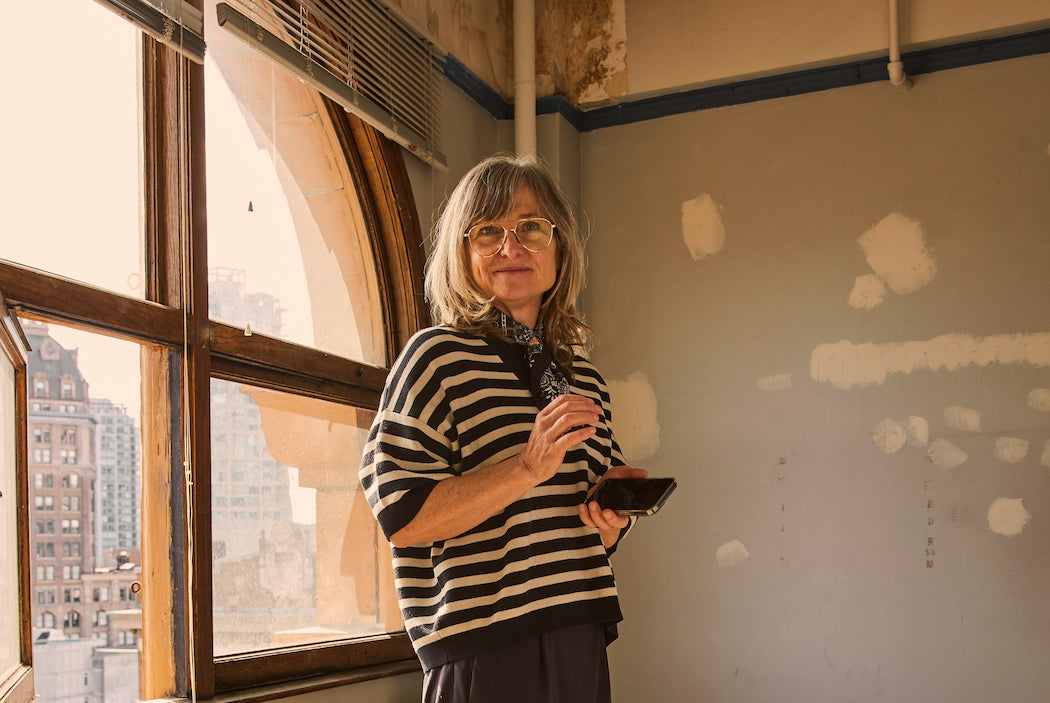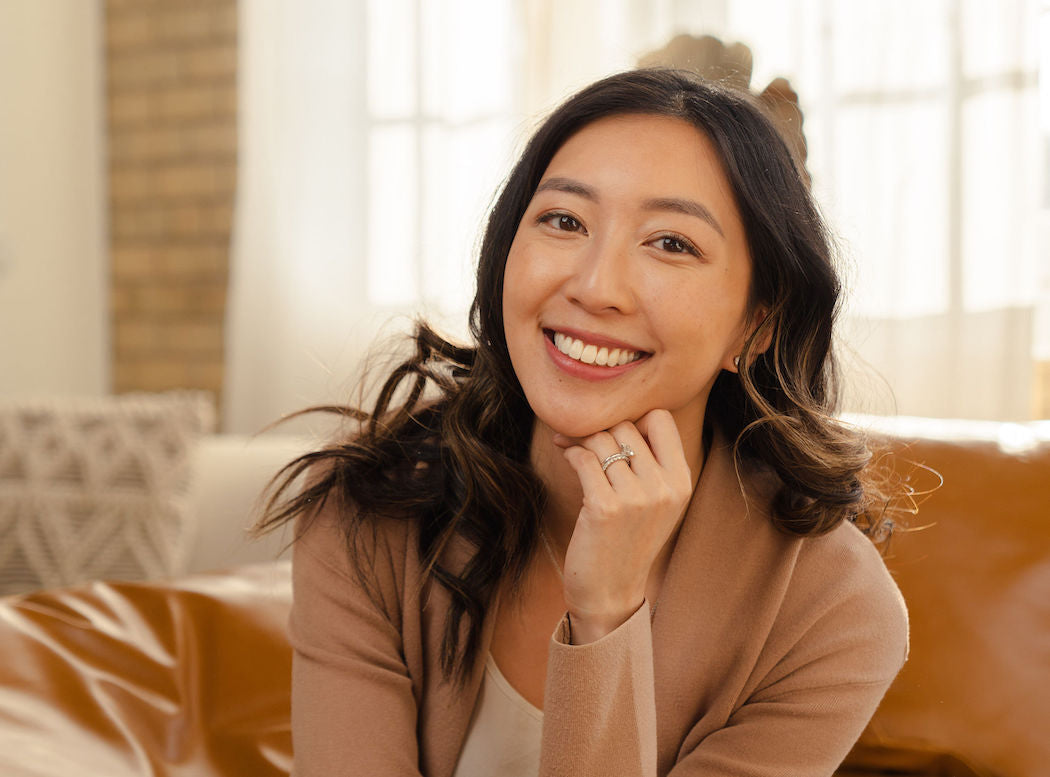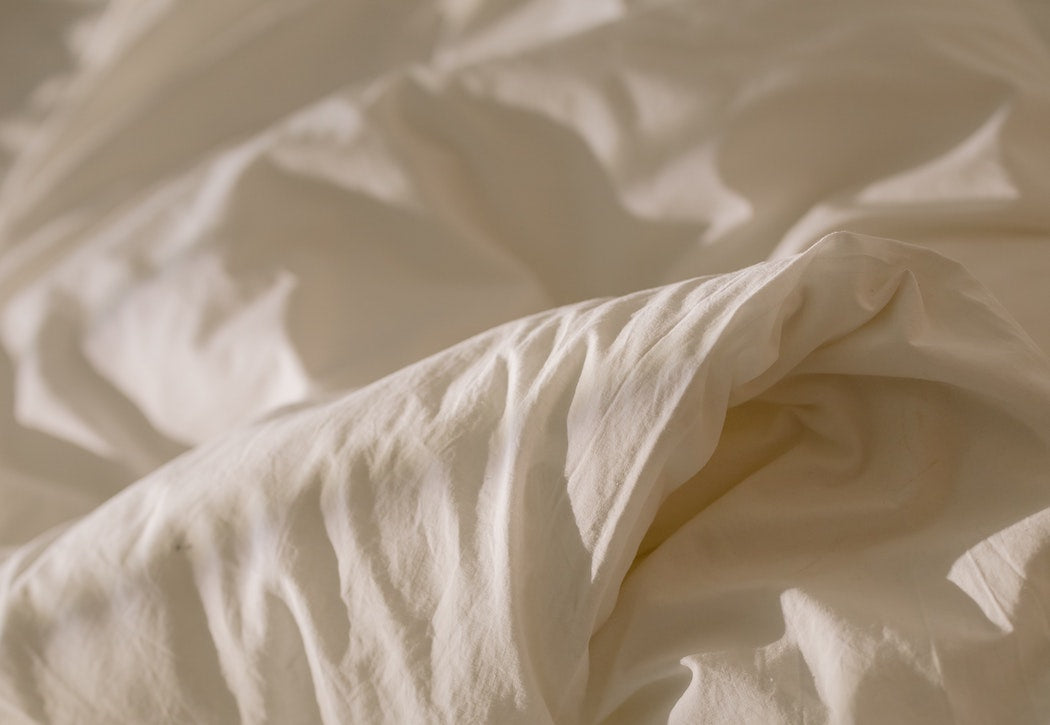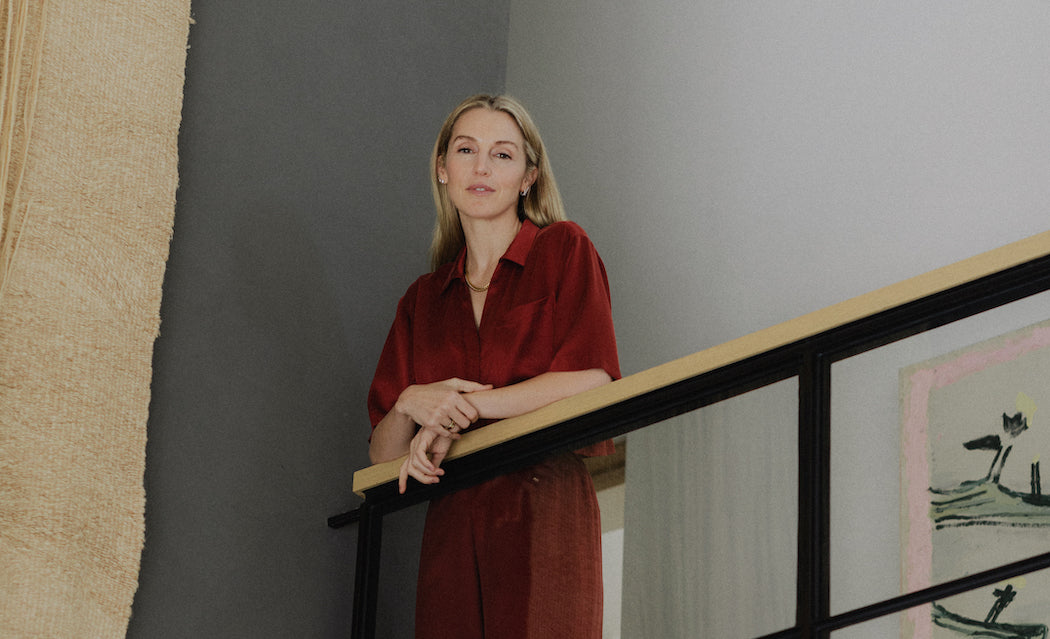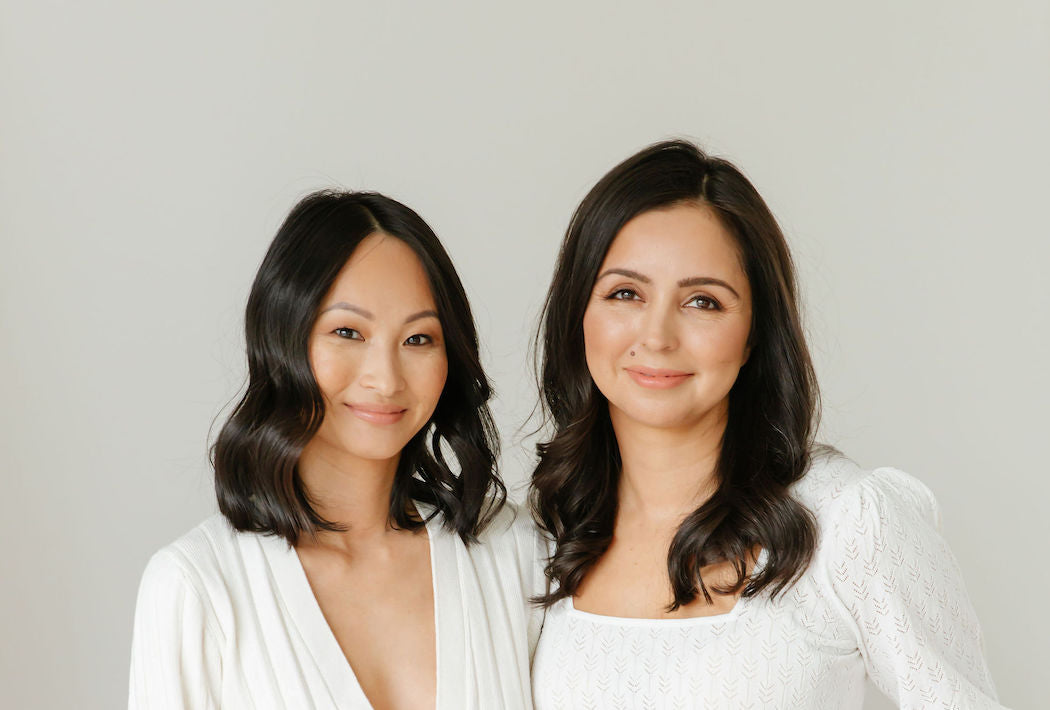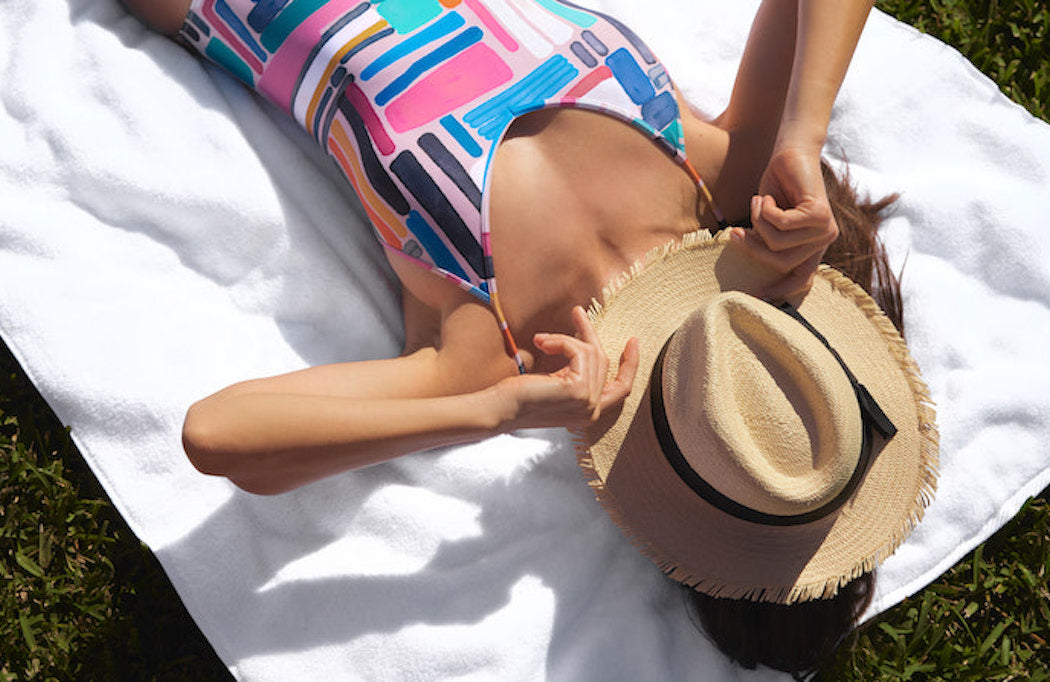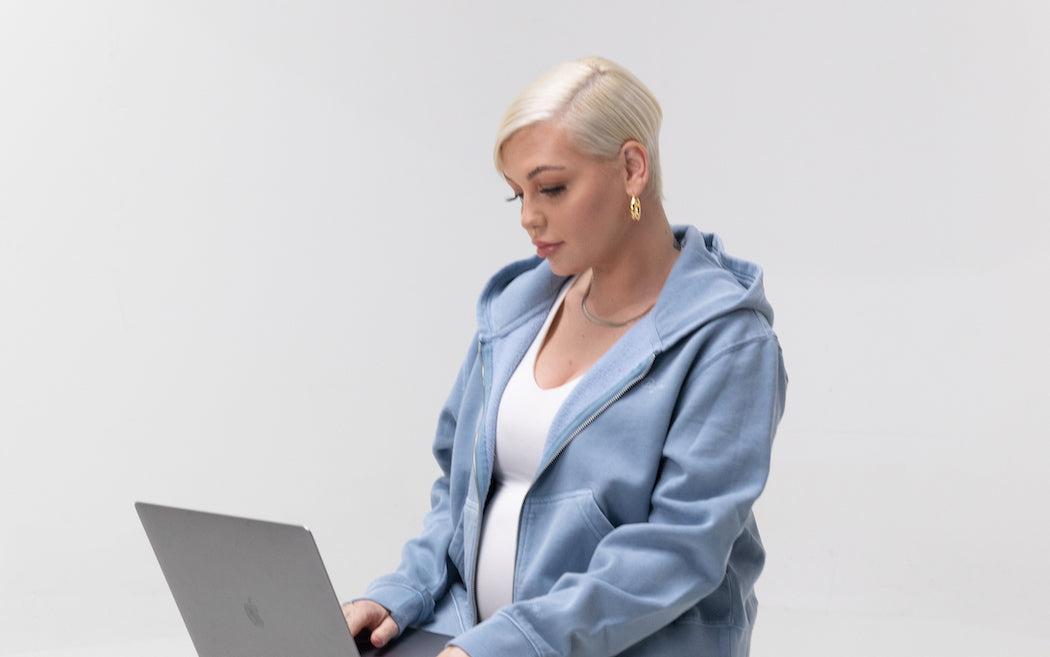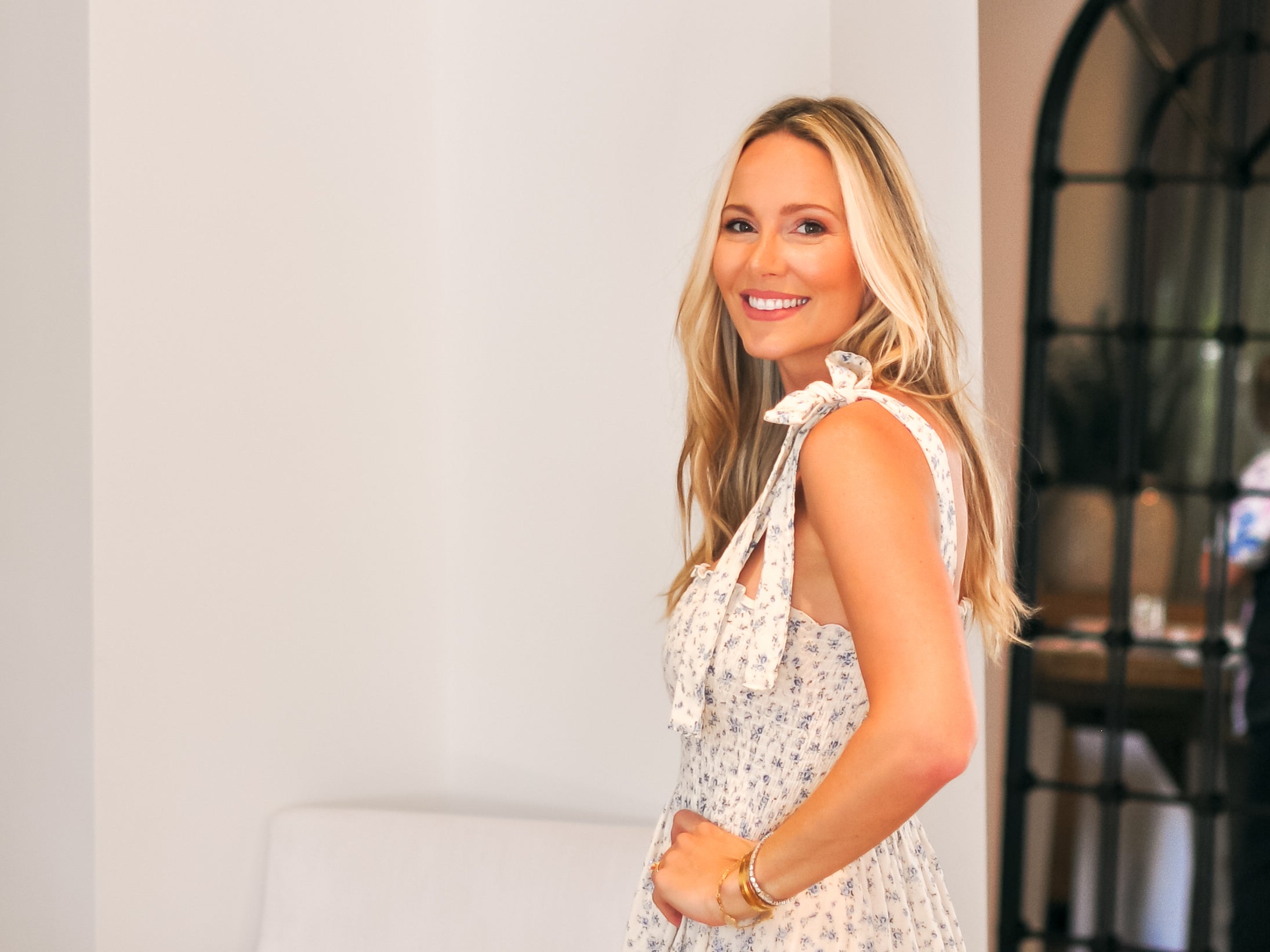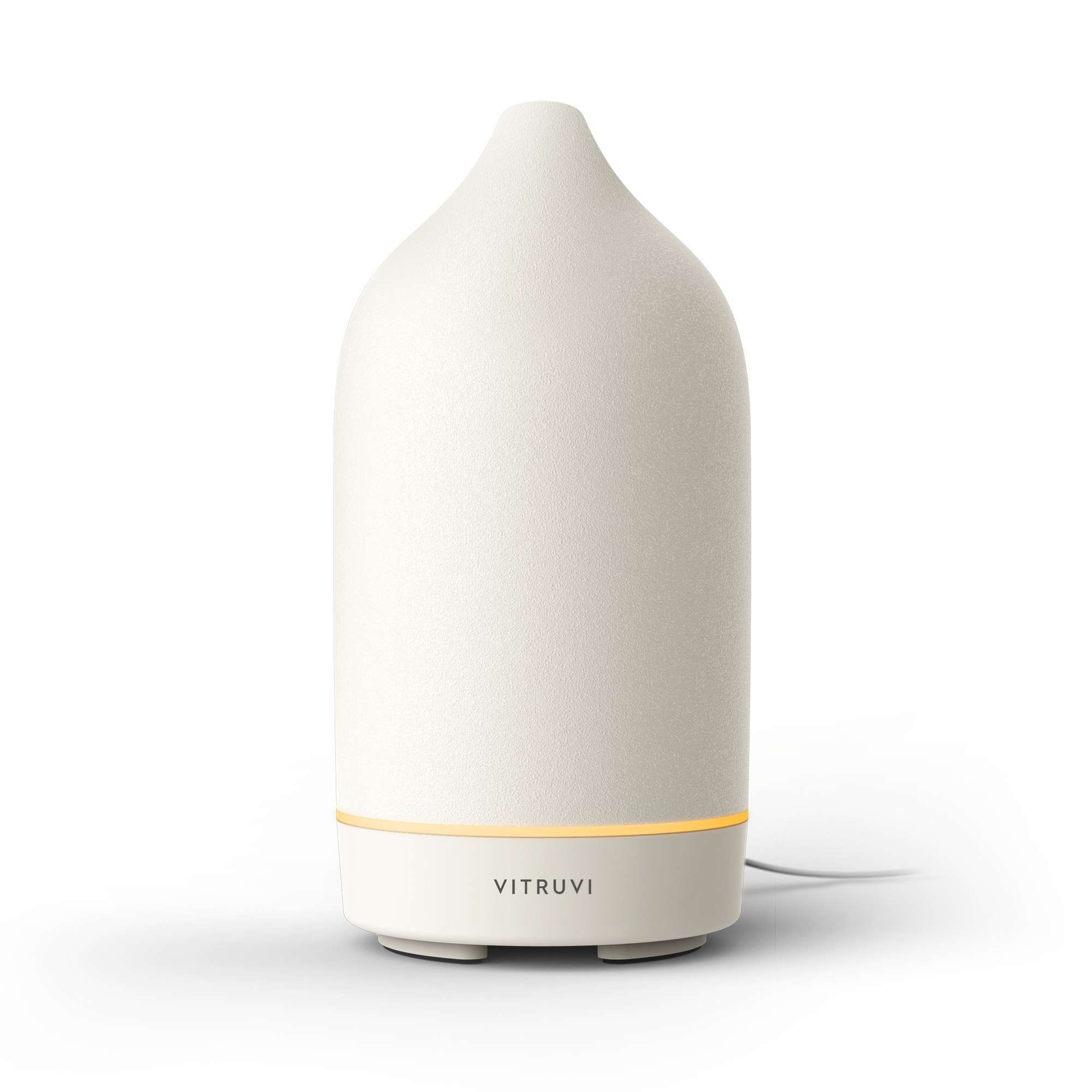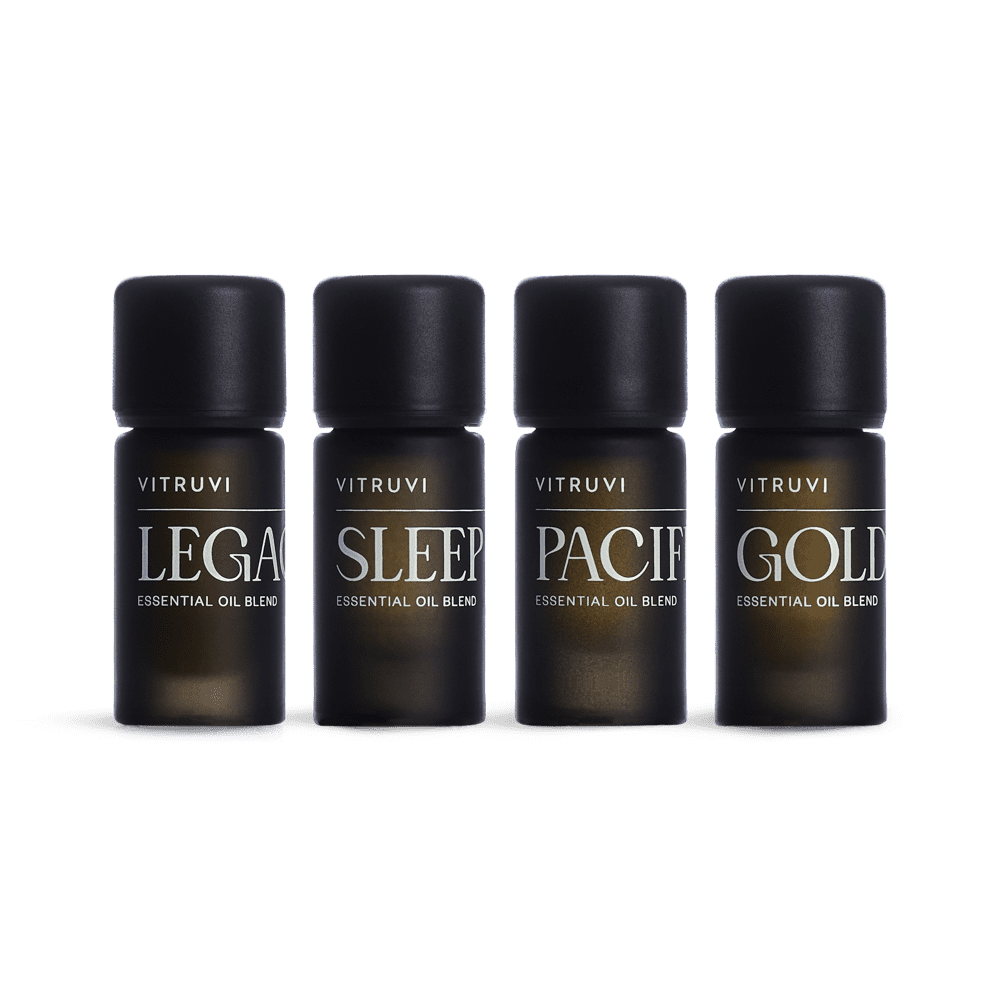Pandemic life is stressful for everyone—this is no secret. And while it has disproportionately affected marginalized groups of people (this is also no secret), the truth is that no matter your place in the world, this whole situation truly, madly, deeply sucks.
For Los Angeles-based jewelry designer Jess Hannah Révész (who is quick to acknowledge her own privilege), the pandemic heightened and compounded her long-standing anxieties. But she was able to channel those anxieties into her work, and the result is a very special ring collection catered to anyone in need of comfort.
“On a personal level, the inception of the idea came from wanting to find a chicer way to ease my OCD and anxious energy. Amidst existing stressors and the new stress levels that 2020 prompted, I found myself reaching for soothing mechanisms more than ever,” Révész says. “My former tool of choice was this acupressure finger massager; I’d keep one in my car, in my bag, and on my nightstand. Having something to occupy this energy, I find, calms my nerves and allows me to think clearer. I think my recent increased use of it prompted me to recall a spinner ring I had from a family vacation as a child: a large silver ring with a spinning middle band decorated with Stars of David. I’m giggling just thinking about it, but I’m sure I thought it was incredibly fashionable at the time! So, although the design was in direct response to a need, it feels like it’s been incubating in me for quite some time.”
The three simple rings in the Pivot collection have middle sections that turn like a wheel, allowing those with fidgety tendencies to occupy their hands, thus helping them feel at ease. It’s the ultimate intersection of beauty and utility. “Amid a year of high stress, unpredictability, and heightened anxiety,” Révész continues, “we found ourselves considering both the relative unimportance of fashion-focused conversations, as well as the extreme comfort that small sensorial distractions can hold.”

Since launching in 2014, Révész’s namesake brand J.Hannah (and sister brand Ceremony, which specializes in rings for nuptials) has become synonymous with LA cool-girl style. Using recycled and sustainably-sourced materials, and making everything in-house, J.Hannah offers accessible luxury for the conscious collector. These pieces are built to last, meant to be cherished and passed down; at the same time, they are meant to be worn, and seamlessly fit into any wardrobe. This modern, minimalist adornment enhances the natural beauty of whoever wears it.
J.Hannah also makes nail polish, disrupting a traditionally showy industry with warm earth tones and cool takes on classics (including a recent notable collaboration with New York’s Metropolitan Museum of Art). Which is all to say that Révész, despite having never gone to business school, is really good at business. Via phone, she discusses her pandemic experience so far, her coping mechanisms, her views on self-care, and, of course, her love of jewelry.
I’m such a big fan of yours, so I’m stoked to connect with you.
Thank you! I saw what you wrote mentioning my Cuup interview; so touched to hear that it resonated with you.
That was 100 percent true. Reading that interview I was like, “Oh, this is exactly how I feel right now.” You talked a lot about your breakup, and I had also just gone through a separation, so it was exactly what I needed to read.
It felt validating and cathartic to hear that it meant something to people. I mostly get asked about design and business stuff, and it was nice to have a chance to have a conversation about something else (but don’t get me wrong—I love talking about the former!). Especially something that so many of us go through. Often breakups get deemed as frivolous to talk about compared to the more serious “big stuff” conversations, but I think anyone that has been through a divorce, serious breakup, or emotional and physical abuse by a partner, can’t deny the magnitude of pain that comes with it—and that, I think, bears talking about.
I mean, also, what I said was distillation of a lot of things, an adulterated version of the narrative—because it’s pretty difficult to speak about things that are so personal. On one hand it feels really important, but on the other, I’m reluctant to share too much about my personal life, especially when another person is involved.
That is always the thing. From my angle, when I wrote about my breakup, I didn’t want to write about his experience. I wanted to be truthful and authentic, but also to not talk about the other person.
It’s a really hard thing! There are a lot of conversations that I would love to have outside of my friends and family (and therapist), but then you’re like, “Oh, wait, how much do I want strangers to know about me? Am I going to regret putting this on the internet for eternity?”
It’s hard. At the same time, I feel like that’s the stuff that people want to read the most. Because that’s what they connect to.
Yeah. That, or like, my fucking skincare routine.

Which I would actually love to know, but I will not start there. [Editor’s note: that can be found on Into the Gloss.] So anyway, we’re basically at the one-year mark since the world blew up. What’s it been like for you personally and professionally?
Personally—without, you know, getting into the specifics of my personal life—there have been a lot of ups and downs. I feel like with that being said, there’s a glaring elephant in the room, which is to acknowledge that I have not had nearly as hard a time as many others. However, I think we all know that regardless of comparing magnitudes of hardship, we all are having a hard time. I’ve had many hard moments—but I do value the silver lining of growth, learning, and introspection along the way.
Professionally, I feel like the term “pivot”—that, along with QR codes—is really having a moment in the sun through all of this. For small and medium brands that were surviving or even thriving through this past year, it’s been about pivoting and adapting through all the changes, tragedy, and hardship. I think our agility and nimbleness as a brand has been our strength. We aren’t overly reliant on wholesale, and we don’t have big issues with our supply chain being all across the world (because our stuff is made locally). Basically, just being able to adjust and having our team working remotely, and our ability to critically think about what is right to do: reading the room and adjusting our messaging in light of current events, or taking total pause if need be.
We have also been having a lot of conversations about the problems and contradictions we face as a business grappling with ethics. I don’t want to be a brand that is adding to the noise on social media, and I don’t want to embody performative allyship or greenwashing, either. As a brand, I’m much more interested in exploring, and having conversations about, what it means to be an ethical for-profit business in our very weird capitalist America. How can we produce things as sustainably as possible that are meant to be kept forever, as well as support people and organizations that we care about, and have a little fun and create a little beauty along the way? It’s something there is no answer to, but we are continuously asking the questions and trying to do the things to be better. It’s an ongoing process.
How have you toed that line between knowing that what you’re selling is a luxury product (in the sense that it’s not a necessity), while at the same time knowing it’s something that can enrich people’s lives and bring joy?
I think it’s an interesting question, because most things in the fashion and art space are not a necessity. While in a perfect world equal access is ideal, as it stands, not everything is attainable for everyone—and for a myriad of reasons. Ironically, producing a great product on a small scale and in a conscious way is very expensive. I think maybe the conversation should focus on what it is that you want to put out into the world, and less about being everything to everybody.
It’s really not a black-and-white or prescriptive way of doing things. I think there are a lot of conversations that are around what big, big brands are doing badly, and what small, small brands are doing great. And there’s not a lot of conversation about the in-between, and about how to do it in a good way. How can you be a for-profit business that’s quote-unquote “ethical” or “sustainable” in a line of work that’s inherently not, and in a system that’s inherently not? It’s really complicated. But it’s a necessary conversation.
What has been a big learning moment, or a surprise for you, that you’ve had to discover or navigate over the last year?
One of the things that I keep coming back to is that things are rarely black and white. I very much dislike thinking in terms of absolutes or oversimplifications. And I try as hard as I can to strive for dialectical thinking when approaching complex issues, or when trying to reconcile different viewpoints or seemingly contradictory information. With social media and access to information overload on a daily basis, the way we currently process information is very much a hindrance to critical thinking. And I think it’s so important to encourage deeper thinking and hold space for nuance, context, and creativity. Critical analysis can be lost when we try to oversimplify or overgeneralize, or when we dig our heels into what we think is quote-unquote “right” and “wrong,” and let our confirmation bias and absolutes guide our process. I’m trying my very best to seek out what is in the gray. I think that we are ever-evolving beings, and our opinions can and should change with new information. It’s a never-ending process.
How do you create space for yourself for that big-picture, exploratory thinking?
In terms of practicing it right now, one example is with friends and loved ones: leaving space for what other people aren’t telling you (which is particularly important in the pandemic). Knowing that what it looks like on the outside of my own experience can often be very different from what I know and feel on the inside, that must be similar in terms of how I am perceiving other people. A lot of that has to do with me making a concerted effort to not make assumptions about someone’s life circumstances or what’s inside their brain. You have to listen and leave room and empathy for what they’re not telling you.
What do you do for yourself in terms of self-care? And how do you carve out that time for yourself?
A couple days ago, a friend sent me a podcast where Brené Brown was interviewing Emily Nagoski (author of one of my favorite books, Come As You Are) and Amelia Nagoski. They recently came out with a book called Burnout, which I've yet to read; but in this podcast, they touched on a couple points, which for me were like, mind-blown emoji.
They were talking about the feeling cycle, and how emotions are really scientific, physical, things in your body—and it’s a cycle that needs to be completed. It’s not like, “Oh, you’re just being emotional, that’s not real.” I feel like we often dismiss feelings as not physical, but they prove that they very much are. And they were talking about how feelings have a beginning, middle, and end, and that we often don’t allow ourselves to complete the cycle for various reasons: such as compartmentalizing so that you don’t feel it; or for social reasons, because you’re told you’re being dramatic or overly emotional; or that you should be done with that feeling and not talking about it anymore. And so, often we force ourselves to let it go. But it doesn’t really go away—it just manifests in some other way later or physically erodes your body. Just that concept alone has been really eye-opening to me. It’s a physical thing! You have to let yourself feel something in order to move through it.
I think for me, the way that my anxiety manifests in the real world is through high performance and being go, go, go, and boxing up the hard things to focus on everyone, everything, and anything else. I think just hearing that bit about the feeling cycle sort of changed my definition of self-care to mean more about letting myself feel the feelings, and doing what I need to do to complete that cycle—whether it be fucking crying, or being annoyed and screaming, or journaling, or rage-walking, or dancing. Taking a bath and listening to music; talking it out with my therapist or friends; it looks different for me each time, and looks different for everyone else. But I think the takeaway is to do the things and let yourself feel the things, and not to try to push it down or skip it.
There’s a saying I saw once that I love: “Feelings are visitors, let them come and go.”
Or they will knock on your fucking door and keep you up at night.
Yeah, they have to decide when they’re ready to leave.
You cannot evict them. We have excellent tenants rights in California.
For sure—they have way too many tenant’s rights to be evicted. Okay switching to jewelry for a second, are you someone who changes things up every day or do you have your constant favorites that you always wear?
I am not someone who’s switching it up every day. I’m into a uniform and have a few pieces that I keep in constant rotation. I have the Pivot Ring I, which I love; I find it very soothing. And then my earring look that I do when I’m feeling fancy (which is rare, to be honest) is I double up the Strata Hoops I; I have multiple piercings and I like the way they look doubled on each ear. And a pinky ring, always.
I do have some pieces that I’ve inherited from my grandma, and those definitely are my most cherished pieces—those are really what inspired me to get into jewelry in the first place. I think that’s what I love about jewelry: it’s fashion, but it’s also this thing that you’re going to have forever. And it’s also kind of a tiny sculpture, so it fits into the “art” category—more so than other things that fall into just fashion, you know?
It’s a thing that holds sentimental value or that people imbue their own meaning onto, whether you bought it for yourself or someone else for a special occasion, or whether it’s inherited from a family member. Maybe I’m saying this because I make jewelry and I love jewelry, but for me it feels like this space that’s really different from art and fashion. It’s that poetic in-between.

It’s interesting—these days, I’ll put on earrings and be like, “Okay, I look presentable. I can go on a video call now.”
We noticed an uptick in earring sales across the category. And there was a moment where we were like, “Is this because people are putting earrings on for Zoom calls?”
Absolutely it is. So lastly, and we kind of touched on this at the beginning, but circling back to the sentiment of that interview you did about your breakup—how do you feel now?
Well, because of my separation situation, I was pretty depressed for a number of months—and it was really only a handful of months that I wasn’t depressed, and then the pandemic happened. Being alone was really difficult for me at first, because prior to quarantine I was occupying most, if not all, of my time—often down to the minute.
Having constant access to the comfort and oxytocin release that hugs and human closeness affords you, and then suddenly not having that, is a jarring experience. I think it is interesting to contextualize it in the physical sense and not as just purely psychological. Adjusting to not having a regular dose of hugs and affection is hard for anyone that’s been in a relationship for a long time, and increasingly so in a pandemic.
And now I’ve had a lot of time alone to be introspective and think about things. And also to learn about myself, and learn about myself in the context of just me and what’s going on in there—and not so much in the context of what I’m doing for or around others. When you’re around other people (even if it’s someone you love and you’re in a great relationship with), you have all these interesting things that you think in your head, but you can’t hear them quite as clearly. It’s been interesting to tap into that.
I am someone who derives pleasure and happiness and energy from being around others and sharing experiences. I had been really hard on myself for not having a feeling of wholeness alone that I so admire in other people. But I’ve eased into liking (though not always loving) solitude, and really appreciating the value of it.
This interview has been edited and condensed for clarity.


